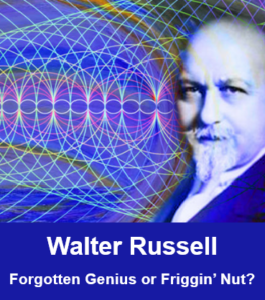 There’s something about certain stories that just won’t go away—fascinating stories buried beneath mounds of mainstream mockery, half-truths/half-fakes, and bygone wisdom or outright quackery. The story of Walter Russell is one of them. He was either the greatest misunderstood mind of the 20th century… or a deluded madman darkly cloaked in cosmic language and boldly dressed in narcissistic self-importance. I’ve come to see Russell more as a forgotten genius rather than a friggin’ nut. But then, I’ve been wrong before, and I’ll be wrong again.
There’s something about certain stories that just won’t go away—fascinating stories buried beneath mounds of mainstream mockery, half-truths/half-fakes, and bygone wisdom or outright quackery. The story of Walter Russell is one of them. He was either the greatest misunderstood mind of the 20th century… or a deluded madman darkly cloaked in cosmic language and boldly dressed in narcissistic self-importance. I’ve come to see Russell more as a forgotten genius rather than a friggin’ nut. But then, I’ve been wrong before, and I’ll be wrong again.
In May 1921, Walter Bowman Russell, a true American polymath or Renaissance man (someone with a wide knowledge range and great expertise in many fields), entered what he described as a 39-day “illumination”—a sort of coma-like trance where he claimed to access “the source of all knowledge.” When he snapped out, Russell wrote down everything he’d seen, understood, and been shown by this universal intelligence. He called it The Universal One, and it was his attempt to organize physics, metaphysics, spirituality, and human potential into one sweeping capture.
Before you write Russell off as a crackpot mystic scribbling cosmic gobbledygook, consider that Walter Russell was no slack-jawed yokel. He was a New York high society man with a successful career in painting, sculpture, and advanced architecture. His portraits of presidents, kings, and captains of industry hung in boardrooms and galleries. The man had agency and he had clout and he didn’t need to do this universal venture thing.
But after Russell’s so-called illumination, everything changed. Russell spent the next several years putting his vision into words. He packaged his findings—part breakthrough science, part practical philosophy, and part spiritual revelation—into a massive tome titled The Universal One. Then he mailed it to 500 of the leading thinkers of his day.
All dismissed Walter Russell as a pseudoscience fool. Except for one.
Nikola Tesla—the great inventor and arguably one of the most brilliant minds on electricity of the modern age—read Russell’s manuscript and reportedly told him: “Lock it in a vault for a thousand years. The world is not ready for it.”
Maybe Tesla was being polite. Or maybe he truly saw in Russell’s vision something we’ve still yet to fully understand. Either way, that’s one hell of an endorsement.
The Premise Behind The Universal One
So, what did Walter Russell actually say?
At its core, The Universal One is a sweeping cosmology that asserts everything in existence—matter, energy, life, light, even thought—is part of a rhythmic, living, breathing expression of a singular source: the universal mind. Russell didn’t see the universe as a cold, dead mechanism ticking along like a watch. He saw it as conscious. Alive. Intelligent. Adapting. Evolving. Cycling.
Here are the central themes Walter Russell laid out:
- Everything is Light: All matter, according to Russell, is simply compressed light. Everything you see, touch, or think is made of waves of light energy packets spiraling into and out of existence.
- Duality and Rhythmic Balanced Interchange: Nature operates through a continual pulsing dance of opposites—male/female, compression/expansion, hot/cold, life/death, yin/yang. This dynamic balance governs everything from atoms to galaxies.
- The Universal Mind: At the center of this pulsing creation is a conscious intelligence—what Russell called the Universal One or Universal Mind. We, as human beings, are not separate from it. Rather, we are individualized expressions, or packets, of this greater consciousness.
- Electric Universe: Long before modern plasma physics began questioning the standard model of cosmology, Walter Russell proposed that the entire universe is electric in nature—not gravitationally driven as Newton and Einstein taught.
- Creation Through Thought: Russell believed that thought is the architect of form. The mind shapes matter through waveforms. Reality is not built from atoms upward—it is projected from consciousness outward.
- Everything is Cyclical: There is no true beginning or end, only cycles. Death is not an ending but a transformation—just a wave receding to rise again. Yet evolving and adapting to change.
I know how this sounds to modern skeptics. “It’s bullshit, Roy.” But I’ve learned something through my decades of investigative experience—the more you look at how the world seems to work, the stranger and more perplexing it becomes.
A Man Out of Time?
Walter Russell published The Universal One in 1926—an era when the scientific world was obsessed with immediate gratification materialism. Newton wained and Einstein’s relativity was dominating. Quantum mechanics was still a baby. Spirituality and science had been divorced by the Darwinian age, and any attempt to re-marriage them was laughed out of the academy.
In this context, Russell’s book was radioactive. He wasn’t just proposing new ideas—he was challenging the very foundations of what science knew and held to be sacred: that the universe is mechanical, impersonal, and lifeless at its core. Russell insisted the opposite—that intelligence, design, and purpose were woven into the very fabric of matter itself.
That wasn’t just heretical. It was career suicide.
Yet Russell didn’t back down. He and his wife Lao established the University of Science and Philosophy in Virginia and spent the rest of their lives teaching what they believed to be cosmic law and the core of reality. Today, the Russell legacy is kept alive by a handful of disciples and independent thinkers who still scour Russell writings for insight.
Was Russell right? I can’t say, certainly not with certainty. But I will say that much of what Walter Russell proposed has aged surprisingly well.
Walter Russell vs Modern Science
Russell’s ideas are being quietly revisited by new thinkers challenging the standard model of physics. Plasma cosmologists, electrical universe theorists, and consciousness researchers are increasingly finding the old Newtonian-Einsteinian paradigm incomplete.
What if Russell glimpsed what we’re now just beginning to see? Especially as advanced artificial intelligence accels us into new understandings of how the universe truly operates?
For instance, Russell’s claim that all matter is compressed light. Today, we know photons (Planck) are light particles delivered in packets through waves that are converted into matter and antimatter in particle accelerators. That’s not theory—it’s proven by valid experiments.
Or Russell’s assertion that thought shapes reality. Quantum mechanics, through the observer effect (Schrodinger), already hints that consciousness plays a role in the manifestation of outcomes. Mainstream physicists like John Wheeler and David Bohm didn’t reject this idea—they wrestled with it and put it to the mat, tapping it out.
Then Russell’s insistence on the electric nature of the universe. He argued that gravitation was only half the picture—that electrical forces, not gravity alone, form the scaffolding support of galaxies. A growing body of research in plasma cosmology is starting to agree.
And what is light? By every definition, light is electromagnetism delivered in packets through waves. (Back to Planck) And within the packets is information. Intelligent instruction. Data that we can observe. (Back to Schrodinger)
I’m not saying Russell had all the answers. But Walter Russell sure was asking the right questions.
Why This Matters Now
You might wonder why I, Garry Rodgers—a guy who spent his career dealing with homicides, cold cases, and the gruesome facts of death—would write about a metaphysical mystic who claimed to channel the secrets of the universe.
Simple. I’m a seeker of truth. Always have been. It’s in the DNA.
Truth is sadly lacking in today’s society, and I believe truth truly matters.
And I believe truth wears many disguises—scientific, philosophical, spiritual, and even criminal. The pattern I see is that reality is far more layered, intelligent, purposeful, and meaningful than we’re taught to believe. Walter Russell seems to have seen that too.
I’m not suggesting we canonize Russell or throw out the scientific standard model of physics—electromagnetism governed with gravity and the two nuclear forces, stong and weak. But we do need to entertain the possibility that overarching important truths of existence comes from outside the current paradigm.
Russell didn’t profess to be a sage. He claimed to be a messenger. Call him a phrophet. A channeler. He insisted every human being has the same potential to access higher knowledge if they still the noise and tune into the rhythm of the universe. That’s not dogma. That’s invitation.
Key Takeaways from The Universal One
To wrap up, here’s what Russell said, boiled down:
- The universe is not a dead, unconscious machine—it’s a living, conscious system.
- Matter and energy are rhythmic expressions of light waves.
- Consciousness is not a product of the brain—it’s the source of all form.
- Everything is created and sustained through balanced opposites.
- Cycles are the law of nature—life, death, and rebirth are one continuum.
- Science and spirituality are not enemies—they’re two eyes of the same vision.
Call Russell a genius. Call him a nut. But don’t call him boring.
Final Thought
The older I get, the more I respect those who’ve stepped outside the lines—and paid the price. Walter Russell was one of those folks. Whether he was divinely inspired or cosmically confused, his century-old work deserves to be revisited with fresh eyes and open minds.
We live in a time when trust in institutions is eroded. Science is politicized. Religion is fragmented. People are hungry for something real and meaningful—something honest and relateable—something that simply explains not just how things actually work, but why they truthfully matter.
Russell tried to answer that. Maybe he went too far. Maybe not far enough.
But as someone who’s spent their life trying to understand what lies beneath the surface—of people, of crime, of life and death, of consciousness—I can say this: The Universal One has earned its place in the vault of ideas worth considering.
If Nikola Tesla saw something in Walter Russell… maybe we should too.

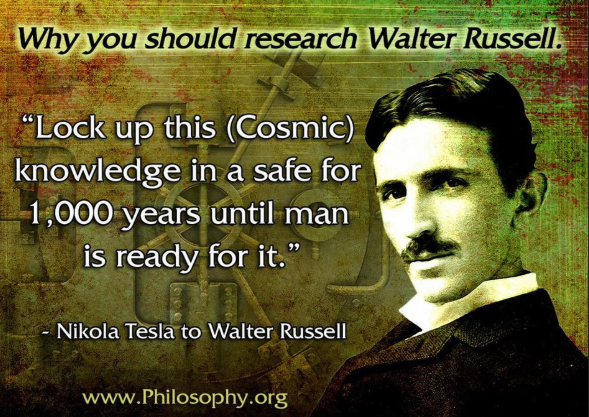
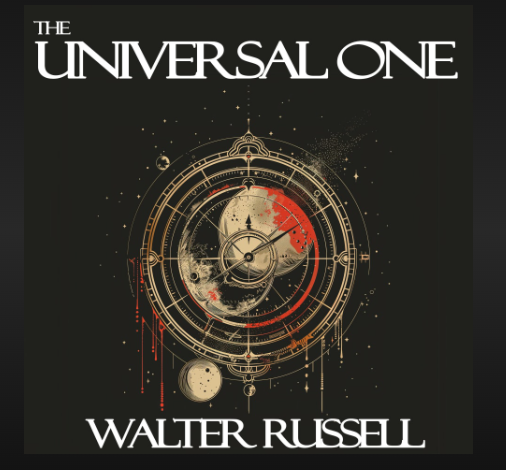

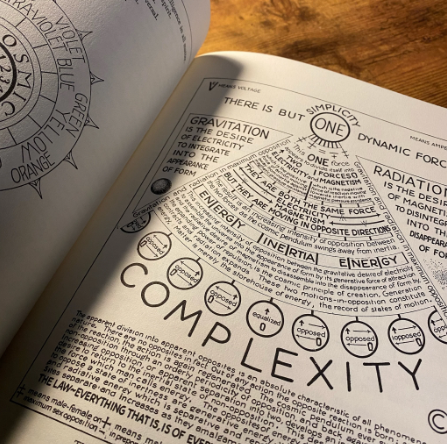

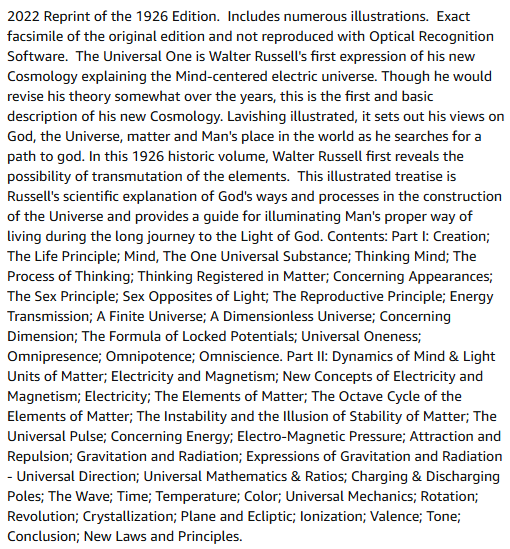
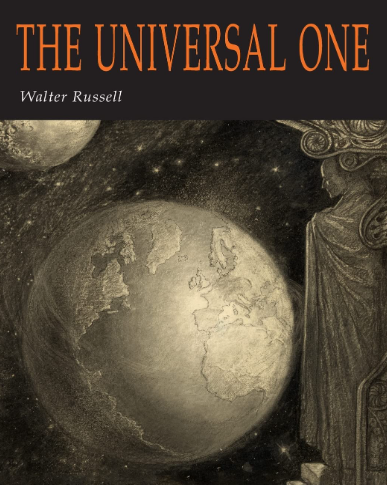
I’ve always — since childhood —thought about the same baffling things Walter Russell so elegantly expressed, though I’d never heard of him until today. My question this week has been about the observer effect and whether it has any impact on how we see loved ones who have passed on, or even their material energy — light, I suppose. I’m writing a memoir about my mother’s life. She died in 1983. The part of me that is intrigued by magical thinking wonders if employing radical empathy, when reimagining the life of a person who self-destructed, can redeem them more meaningfully than we currently believe. If past, present and future are always present, I would love to use love to create a moment, like the book being knocked off the shelf in the movie, Interstellar, to redeem a forty-four year-old ghost. Whether Walter Russell is a ghost or nut, I’d certainly love to use his thinking to tell my mother’s story.
Fascinating comment, Teresa. Thank you for this. It’s long been reported that immense light is encountered by those having near death experiences (NDEs). And if the energy of life is, in fact, intensified light, then this makes sense and should exactly be expected. In my time as a coroner, I’d often been asked about my belief in life after bodily death. My response was always, “We came from somewhere to be born, and I believe we go back to the same place after death”. Yes, I believe that light is somehow the foundation of reality – at least how we humans experience reality. Thanks for dropping by and sharing your thoughts.
Really interesting post, Garry. So many belief systems, whether based on faith, science, or something else, are quick to dismiss any other ideas b/c THEIRS is the only true system. That seems like arrogance, not truth seeking. The older I get, the less I’m certain I am that there are absolute, bet-your-life-on-it certainties. Thanks for sharing the story of Walter Russell.
You’re most welcome, Debbie. When preparing this piece on Walter Russell and absorbing his conclusion that reality is light-based, I remembered a book I had from a long time ago titled “From Science to God” written by Peter Russell (no relation as far as I know). The subtitle is “A Physicist’s Journey Into the Mystery of Consciousness”. Not surprisingly, this book comes to a similar conclusion. A quote at the end, “If we want to find God, we have to look deep within, into deep mind – a realm that Western science has yet to explore”. “God” being the source of consciousness and intelligence. Happy Sunday!
Hello, Gary
I am a long time reader of your blog but a first time commenter. I just wanted to let you know that I found today’s blog on Walter Russell to be very thought provoking. While coming from a spiritual/Christian perspective, I found Russell’s quote on “the cardinal error of science is shutting the creator out of its creation”, to be profound. I’m sure there are others who will disagree or otherwise interpret his comment. Genius or simply nuts? I sometimes think there is a fine line between the two.
You and I share a few similarities in career paths. I am a longtime (now retired) paramedic, but started in the days of ambulances responding from funeral homes. In order to do one job (ambulance), you also performed the duties of the other, funeral home work, for the deceased and their families. Fascinating, but monetarily low compensation, though highly compensated in shedding of light into aspects of life and death.
Keep up the good work! I have not read one of your articles yet that did not grab my attention.
So nice to hear from you, Alan! And thanks so much for the supportive feedback. When I stumbled upon Walter Russell’s quote on the creator, I knew it had to be shared. Nut or genius? I supposed it could go either way. Sort of like Elon Musk 🙂
ps – I like the name Alan. My dad’s name was Alan, m,y first name is actually Alan, and our son’s name is Alan. And you even spell it correctly!
Gary,
To say this is fascinating would be a huge understatement. Though I guess it sounds a bit pompous to say so I consider myself a truth seeker also. I’m always reading questioning and reassessing and the older I become, the more I do all of those things.
I have not heard of this book nor this man before bat.Reading reading a bit about him here and what Tesla said about him.
make me want you learn more. I’m about to order a copy of his book from amazon. I’m certainly not saying I will understand all of it , but perhaps I’ll understand something of it and can share it with a few others who can enlighten me a bit more.Thank you so much for writing this.
Hi Lynn! I haven’t heard from you in a while and it’s nice to see you pop up today. I also plan to read the full book which I understand is pretty challenging. I’d heard of Walter Russell but was reminded of his story in a Facebook feed earlier this week. For article ideas, I look for something that interests me, so I research it to find out more, then write to grasp the idea, and then share it hoping it will interest others as well. Enjoy your long weekend!
Thank you so much for your kind reply. My mom , who is ninety six and a half , passed away on december thirtieth , from a type of blood cancer similar to leukemia. I haven’t really read your blog or anything else much.The last couple of years as I was her caregiver. Found this really interesting, thank you again.
My sincere condolences, Lynn. 96 & 1/2 was a good long run.